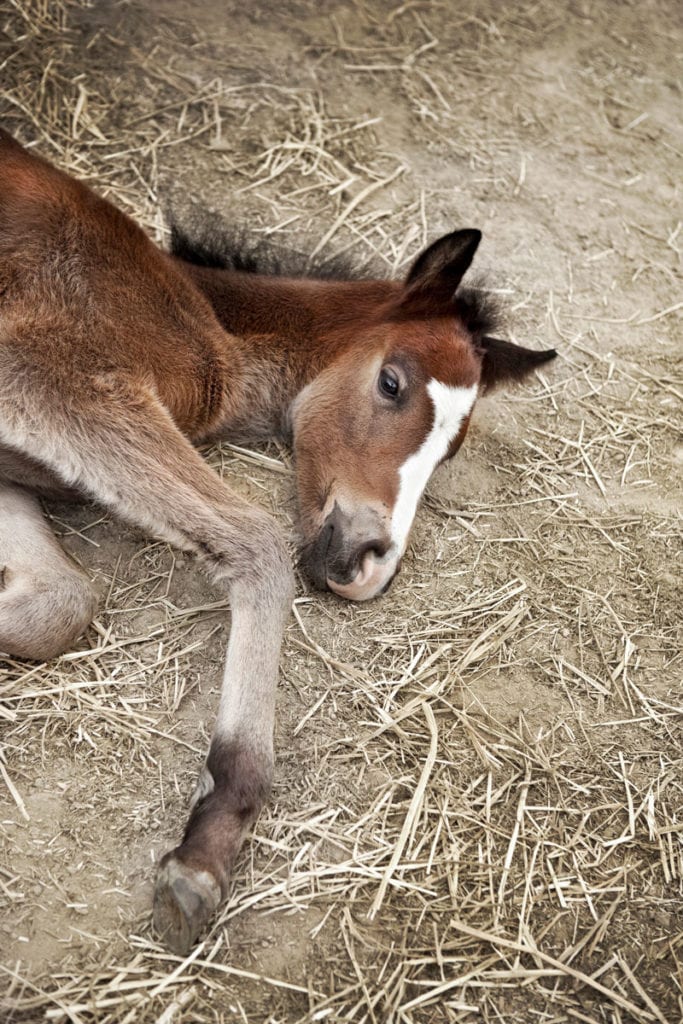Caring for an Orphaned Foal
A pregnant mare means responsibilities, stress and exhaustion lie ahead, but what nobody expects is an orphaned foal. The death of a dam during labor or afterwards puts a lot of pressure on you to raise the orphaned foal while also mothering it. To make sure the foal grows fit and healthy, you must be aware of the risks.
Colostrum & Milk for the Orphaned Foal
The first 24 hours are vital. Normally the foal’s first feed is colostrum, also called first milk, which contains essential antibodies to help the foal’s immune system develop. Nursing mares are difficult to find and not all mares and foals will connect, so you may have to provide a substitute by hand. You must feed the foal colostrum every hours for at least six hours after birth.
Nursing an orphan foal is time-consuming because they feed up to 17 times an hour for the first week. The number of feeds steadily decreases, dropping to three times an hour at 2 weeks old and stabilizing at two feeds a day at 8 weeks. A foal will feed on milk until weaned at 6 months.
Encourage the orphan to drink from a bucket early in the process, but bottle-feed weaker foals for as long as necessary. Make sure the milk is at body temperature (37 degrees Celsius) for the first two days of feeding, then at room temperature (21 degrees) afterwards.
Housing
Mothers naturally keep newborn foals warm and safe. Make sure an orphaned foal with no adoptive mare has a draft-free stable with soft straw bedding. Place rubber matting on the ground and around the walls to prevent injuries. It’s vital that the stable is always dry and clean so the foal doesn’t fall ill. Keep foals blanketed so they’re warm, especially throughout the cold months.
Companionship
Foals require companionship. While other horses are preferable, you can raise an orphaned foal with a sheep, goat or donkey. Geldings make better companions since they’re more placid, but other foals are ideal.
Health
Foals are susceptible to diarrhea (scours), especially when they’re fed a colostrum substitute. This is normal and doesn’t require veterinary treatment, but watch for signs of dehydration, such as lethargy or depression. Vaccinate foals at about 3 months so they’re protected from infectious diseases. Treating them for worms and other parasites is also an important part of preventing illness. When a mare dies, caring for the orphaned foal is hard work. With time, patience and love, you’ll find the effort is definitely worth it. Remember to keep a camera handy for all those special
Equis Save Foundation in Montana
If you have an orphaned foal that you are not able to care for, please contact Equis Save Foundation, a horse rescue in Livingston, Montana.







